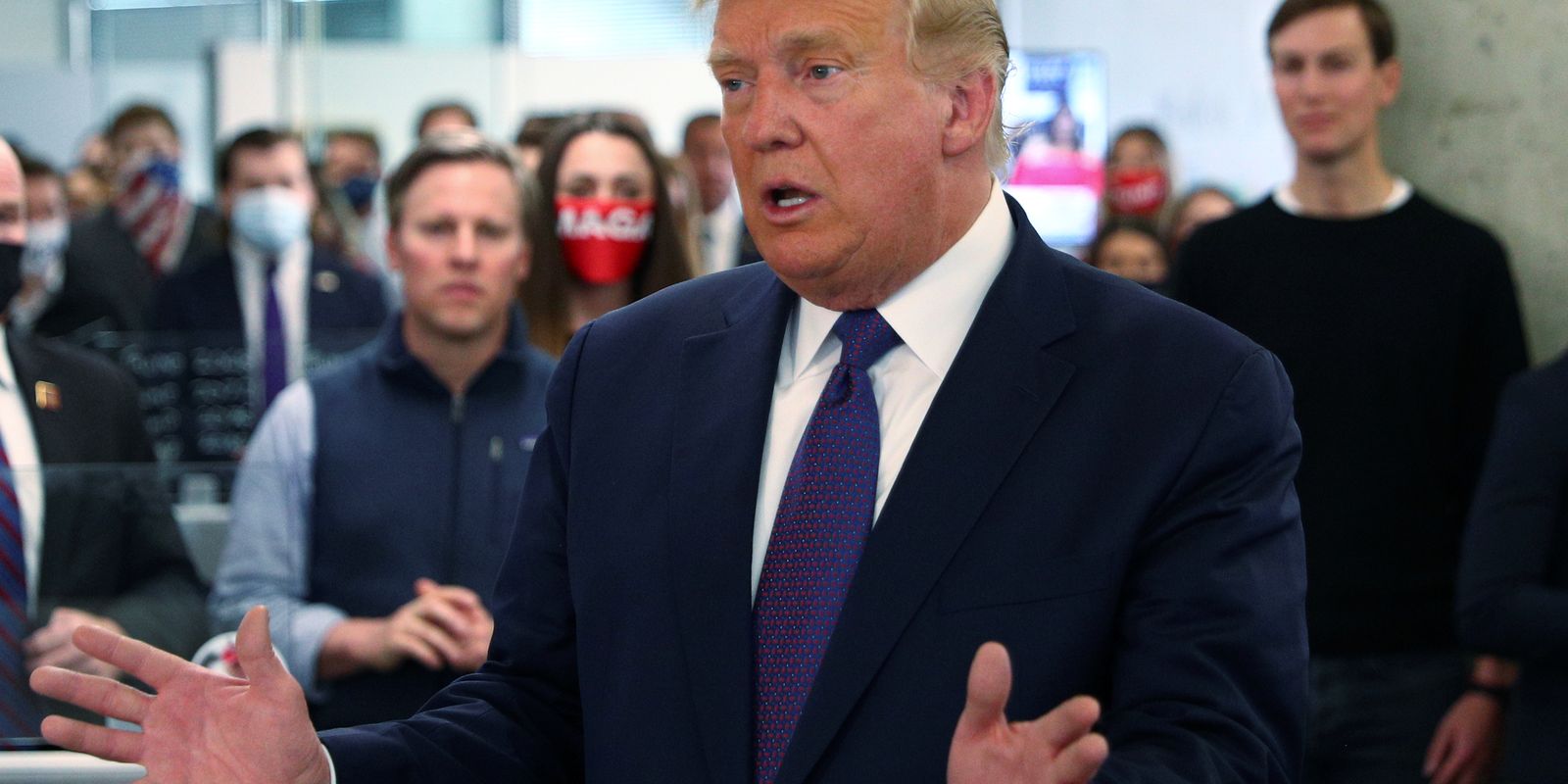Experts see US interest in Trump’s Venezuela speech
3 min read

Experts say that former US President Donald Trump, if re-elected, would have taken over Venezuela and taken all the oil, revealing US economic and political interests in Venezuela. Brazil Agency.
During a rally in North Carolina this weekend, Trump commented on his administration’s foreign policy regarding Venezuela. “When I’m gone [da Presidência], Venezuela was poised to collapse. We would have taken [o país] I take all the oil in the neighborhood. But now we buy oil from Venezuela,” he says.
Beginning in 2017, the Donald Trump administration adopted a policy known as “maximum pressure” against Venezuela. Although the first unilateral coercive measures (so-called economic sanctions) were implemented during the administration of Barack Obama in 2015, it was only during the administration of Trump that economic sanctions targeted the economy as a whole. Access to US government debt in August 2017 and an embargo on oil trading in January 2019.
The White House has controversially said the plans are aimed at “political regime change” in the Caribbean nation, with the aim of promoting democracy and human rights, as Washington views Nicolás Maduro’s government as a dictatorship.
Camila Feix Vidal, a professor in the Department of Economics and International Relations at the Federal University of Santa Catarina (UFSC), points out that the use of democracy as part of US foreign policy provides moral justification for interventions and actions. Behind is an object of interest.
“The body organized for this is NED [National Endowment for Democracy]. This is a clear example of using democracy to justify foreign policy for a particular country. The NED was created to protect democracy with resources approved by Congress. It was created [ex-presidente Ronald] Reagan had to operate in an external environment after the use of the CIA was questioned. “An institution created with the moral and legal purpose of promoting democracy, in fact, has been used to destabilize certain governments, including democratically elected ones, that do not submit to the U.S. government,” explains the professor, who studies U.S. interventions in states across Latin America and the Caribbean.
According to the UFSC professor, in addition to economic interests such as oil, there is a geopolitical factor. “Of course oil is important to the US, but I would say the main focus is to maintain US hegemony in Latin America. They must continue to run the region and continue to influence and persuade governments to be friendly and subservient to this US ruling class. Those who do not participate in this game suffer the consequences,” Camila Vidal analysis. does
Sociologist Rafael Seebra, a professor at the Department of Latin American Studies (ELA) at the University of Brasilia (UnB), believes that Trump’s speech helps expose US foreign policy toward Latin America. “There is no real security for democracy, human rights, people’s food security, health or anything like that. “The concern remains the same as always: the strategic reserve, rich in natural resources, impoverishes the population as much as possible to create discontent and overthrow the government,” the professor analysed.
Venezuelan economist Francisco Rodríguez, a critic of Chavista governments and Donald Trump’s “maximum pressure” policy, said the former US representative’s speech “seems to confirm the version of his former adviser John Bolton, according to which Trump was accredited. Juan Guaido promised preferential access to Venezuelan oil.
An oil company director and founder of Venezuela, a non-governmental organization (NGO) advocating solutions to the Venezuelan humanitarian crisis, Rodriguez writes about the economic and social implications facing the Caribbean nation. He He quoted the book The room where it happened Former Trump adviser John Bolton. In the publication, Bolton said Guaidó promised to prioritize Venezuelan oil fields to the US to the detriment of China and Russia.
In January 2019, then-opposition deputy Juan Guaido declared himself president of Venezuela, which at the time was recognized by several countries, including the European Union, Brazil, Peru, Argentina and Chile.

“Communicator. Award-winning creator. Certified twitter geek. Music ninja. General web evangelist.”





:quality(80):focal(-5x-5:5x5)/cloudfront-us-east-1.images.arcpublishing.com/estadao/6LQDZFJQCBP4TJ4KSOTOFQH6KQ.jpg)